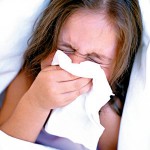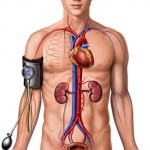You realize that digestion is one of the most parts of health. Many in the medical community agree that what you eat and your digestion health plays the most important role in how healthy you are and how healthy you will be going forward! That is the reason that in the last few years you have seen an explosion in products that aid in digestion. Alternative treatments and western medicine have both seen the benefits of supplements like probiotics, enzymes, and fiber among others. But what is each one of these supplements and which one should you talk to your doctor about? Should you consider taking one of them or should all be consumed? Lets look into each in a little more detail.
Probiotics
 Probiotics and prebiotics are microorganisms such as bacteria or yeast that are believed to improve health. The digestive system is home to more than 500 different bacterias. They help keep intestinal linings healthy and assist in breaking down food. Beneficial organisms are also believed to help regulate healthy immune response. Researchers believe that some digestive disorders result when the balance of friendly bacteria in the intestines becomes disturbed. This can happen after an infection or after taking antibiotics. Intestinal problems can also arise when the lining of the intestines is damaged. Introducing new beneficial organisms in the form of probiotics may help. There is a great article on probiotics on homeopathic solutions that you need to read, so we will not repeat the facts here!
Probiotics and prebiotics are microorganisms such as bacteria or yeast that are believed to improve health. The digestive system is home to more than 500 different bacterias. They help keep intestinal linings healthy and assist in breaking down food. Beneficial organisms are also believed to help regulate healthy immune response. Researchers believe that some digestive disorders result when the balance of friendly bacteria in the intestines becomes disturbed. This can happen after an infection or after taking antibiotics. Intestinal problems can also arise when the lining of the intestines is damaged. Introducing new beneficial organisms in the form of probiotics may help. There is a great article on probiotics on homeopathic solutions that you need to read, so we will not repeat the facts here!
Enzymes
Enzymes are molecules that help break down proteins, fats, and sugars and enable their digestion. A very important process. The problem is, as people age, they produce less stomach acid. That is the reason that as we are getting older, our digestions begins to suffer and we have problems with our digestion and our stomachs. Enzymes help activate acid so foods are digested properly.
Some problems that can be helped by using enzymes include:
Allergies – to help break down proteins that can cause reactions.
Liver problems – to help with fat digestion and relieve the liver.
Irritable Bowel Disease (IBD), Colitis, IBS, Gas, Diarrhea – to help digest fats, proteins and starches for better digestion and absorption of nutrients.
Autoimmune Diseases and Cancer – to help bodies that may not be functioning up to par to break down and absorb nutrients from food.
Inflammation problems – many enzymes are thought to help lower inflammation response.
Fiber
 You have heard many times that if you have diarrhea you should eat foods high in fiber or take fiber supplements. Many times though when we are constipated we are told to take fiber. How can that be? Is that right? Well, it is not a contradiction! The reason is that fiber helps normalize transit time, or the rate at which food moves through the digestive tract and by doing that, you solve both diarrhea and constipation. Constipation happens when food moves too slowly through the large intestines, often resulting in hard stool that is difficult to pass. Eating fiber-rich foods helps move the contents of the large intestine along more quickly. Fiber also absorbs water, softening stools so that they pass more easily. Diarrhea occurs when undigested food moves too fast, before the intestines can absorb water, resulting in loose stools. Fiber’s ability to absorb water helps make stools more solid. By slowing transit time, fiber gives the large intestines a chance to absorb additional water. Unlike other food components such as fats, proteins or carbohydrates — which your body breaks down and absorbs — fiber isn’t digested by your body. Therefore, it passes relatively intact through your stomach, small intestine, colon and out of your body. Fiber also helps bulk up the contents of the large intestines, binding indigestible food together.
You have heard many times that if you have diarrhea you should eat foods high in fiber or take fiber supplements. Many times though when we are constipated we are told to take fiber. How can that be? Is that right? Well, it is not a contradiction! The reason is that fiber helps normalize transit time, or the rate at which food moves through the digestive tract and by doing that, you solve both diarrhea and constipation. Constipation happens when food moves too slowly through the large intestines, often resulting in hard stool that is difficult to pass. Eating fiber-rich foods helps move the contents of the large intestine along more quickly. Fiber also absorbs water, softening stools so that they pass more easily. Diarrhea occurs when undigested food moves too fast, before the intestines can absorb water, resulting in loose stools. Fiber’s ability to absorb water helps make stools more solid. By slowing transit time, fiber gives the large intestines a chance to absorb additional water. Unlike other food components such as fats, proteins or carbohydrates — which your body breaks down and absorbs — fiber isn’t digested by your body. Therefore, it passes relatively intact through your stomach, small intestine, colon and out of your body. Fiber also helps bulk up the contents of the large intestines, binding indigestible food together.
There are 2 main categories of fiber, soluble and insoluble.
Soluble fiber dissolves in water for the most part, and it creates a gel-like substance that helps lower cholesterol. Sources of soluble fiber include oats, barley, rye, dried beans, oranges, and apples.
Insoluble fiber remains more intact as it passes through the digestive system. That makes insoluble fiber especially helpful in preventing or easing constipation. Insoluble fiber may also help with weight loss, by making meals seem more filling without adding calories. Sources of insoluble fiber include wheat, brown rice, celery, carrots, nuts, and seeds.
Benefits of fiber include:
Fiber helps maintain proper bowel movement and health
Fiber lowers blood cholesterol levels
Fiber helps control blood sugar levels
Fiber aids in weight loss
So how much fiber do we need? For those that are under 50, men need 38 grams of fiber every day, while women need 25 grams. If you are over 50, men need 30 grams and women need 21 grams per day.
So, which should you take? Well, possibly just probiotics or probiotics and Enzymes or even all 3 of them depending on your situation. Most people can benefit from probiotics because probiotics are needed for proper health and anyone that has taken antibiotics or has a lot of stress in their lives, can probably benefit from them. If you are over 45 years old, younger in many cases, and you are having digestive problems, talk to your doctor about taking probiotics. If the problem does not correct itself completely, you might want to add some enzyme supplements. Finally, if you are not getting enough fiber, either add foods that are high in fiber or take some fiber supplements!





